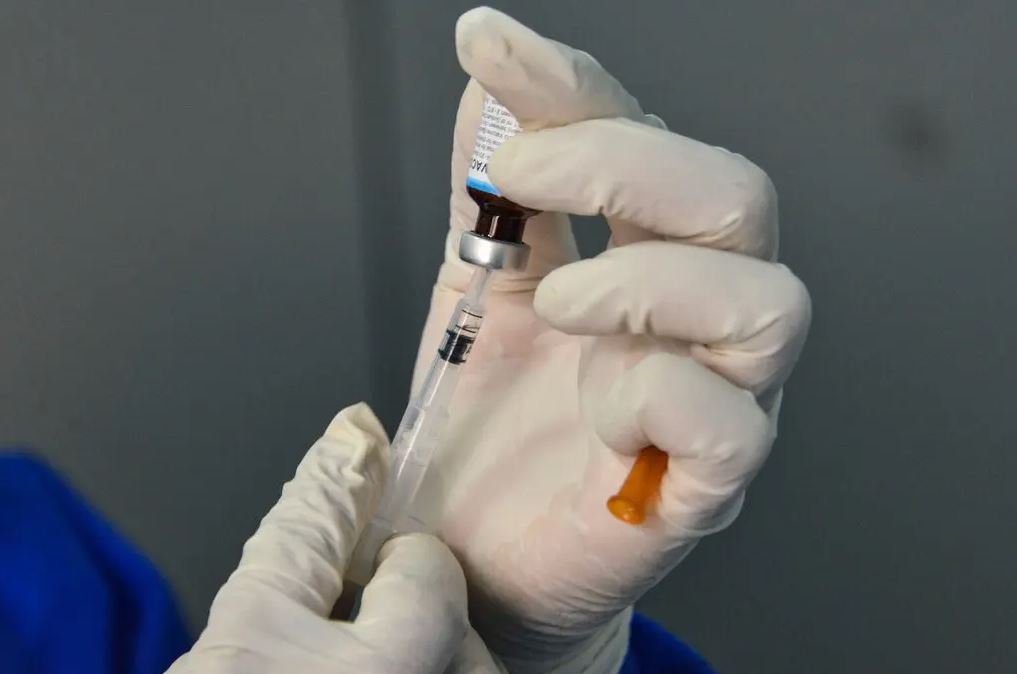On Thursday, researchers discovered that an older TB vaccination that was thought to strengthen the immune system could not reduce Covid infections among healthcare workers.
The B.C.G. (bacille Calmette-Guerin) vaccination may have additional advantages, although the study was shorter and smaller than planned, and the researchers indicated this did not negate their findings.
This was the greatest clinical trial evaluating the vaccine’s ability to prevent Covid infections and was reported in The New England Journal of Medicine. Although B.C.G. was originally intended to battle tuberculosis, it has now been shown to provide protection against a variety of other diseases, particularly those of the respiratory system.
In March of 2020, at the start of the pandemic when there were no viable therapies for Covid and a new vaccine against the highly contagious illness appeared like a distant dream, a trial of healthcare personnel started. It was hoped that the used vaccination may be put to new use and help save lives.
The B.C.G.-vaccinated healthcare personnel were found to be no different from the non-vaccinated group six months following vaccination. Among individuals given B.C.G., 14.7% had symptoms of Covid infection, but only 12.3% of those given placebo injections did.
Five people in each group ended up in the hospital, and one person who was given a placebo sadly passed away. There was no statistically significant difference.
The B.C.G. study could not be completed as planned since healthcare personnel were among the first to get the newly developed mRNA vaccinations.
There were supposed to be 10,000 people followed for 12 months in the B.C.G. experiment from Australia, the Netherlands, Spain, Britain, and Brazil, but the current research only reports on 4,000 adults who were followed for six months.
Dr. Nigel Curtis, a professor of paediatric infectious diseases at the University of Melbourne in Australia and the trial’s principal investigator, called the mRNA vaccines “an absolute miracle of modern science.” From the perspective of the trial, however, it was a disaster.
whether researchers had wanted to examine whether the vaccination prevented hospitalisations and fatalities due to Covid, they would have needed to conduct an even bigger experiment.
In the impoverished world, where many infants die before their first birthdays, the vaccination is still routinely used. Researchers have discovered that giving babies the B.C.G. vaccine cuts down on newborn mortality. Infants who get the vaccination are less likely to develop respiratory infections or other diseases, and it also seems to teach the immune system to react to other viruses.
He said, “This doesn’t tell us anything about the ability to protect people in other age groups against infections,” suggesting the finding still has potential. The notion of baby-centered-care (B.C.G.) remains crucial.
Data gathered from inoculated healthcare professionals is being analysed further. Dr. Curtis warned that the vaccine’s efficacy might shift depending on the specific pathogen it is designed to combat.
The B.C.G. vaccination uses live, mutated bacteria that have been developed through decades of laboratory cultivation in many locations across the globe. Some experts believe that the discrepancies across research might be attributed to the use of different B.C.G. strains and inoculation protocols.
A tiny study of persons with Type 1 diabetes who had repeated B.C.G. inoculations in advance of the pandemic to enhance their blood sugar levels and minimise infections has proven to be one of the most effective so far.
Researchers observed that B.C.G. recipients had much lower rates of Covid infection than placebo recipients.

